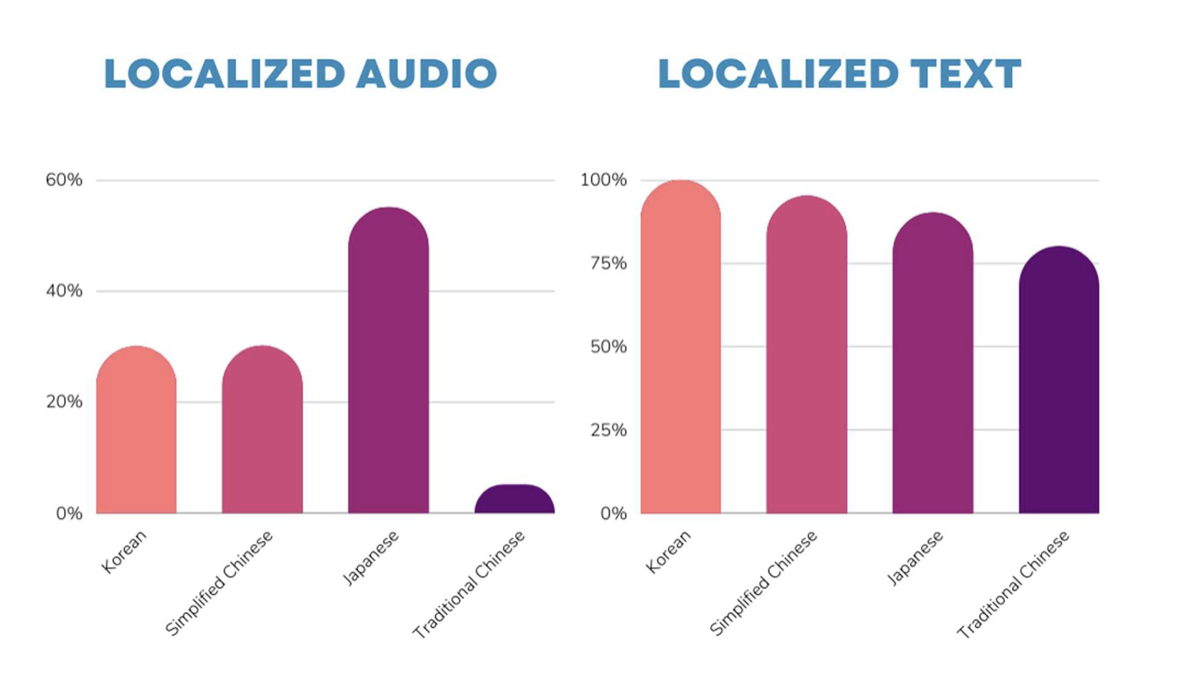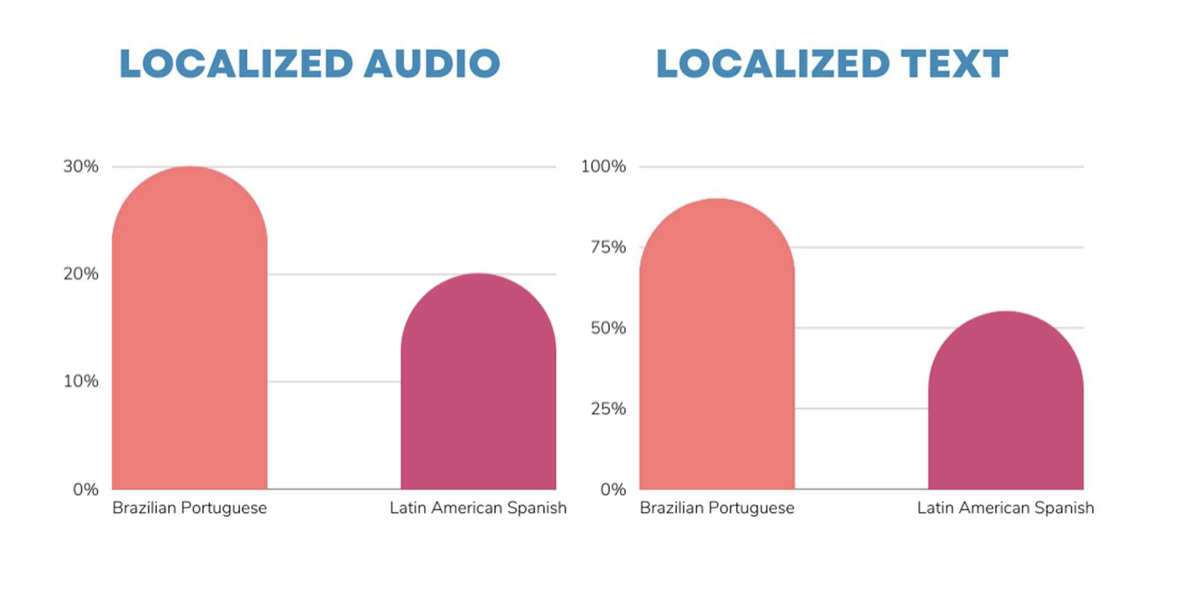
Looking at Localization for 2023
Looking at Localization for 2023
Every developer and publisher wants as many players as possible to enjoy their game, so we thought we'd give you a hand with languages. We're Asian and Nordic language specialists so maybe a little biased, but Asia alone can bring in nearly 2 billion players (Yes, billion).
So, if you're looking to grow your player base and localize next year, check this out:
By 2025 we're going to be making games for 3.5 billion worldwide players, up from 3.2 billion this year. That's a hell of a lot of players, and unfortunately for developers they don't all speak English.
There are 3.2 billion gamers but only 1.5 billion English speakers worldwide, showing how important good Localization is to maximize your game's global potential, and it's only going to get more important.
It's clear the pandemic created a huge influx of new and returning players, which has led to an overall market shrinkage in 2022 and likely into 2023. But, standing strong as always, PC is the only games platform market that has grown this year (though only by 0.5%) to 22% of the market with $40.5 billion in revenue. With that, and hopefully a good year for PC parts coming in 2023, PC is still going to be a great place for finding an audience.
Looking at localization on PC, there's some inconsistent trends with localization for Asia and the growing markets of Latin America, the Middle East, and Africa. We looked at the top selling games today on Steam, as of writing, and came back with some findings.
It feels almost like a transitionary period for localization for Asia when looking at Steam. With top sellers, all had Korean localized text, around 95% had Simplified Chinese, 90% in Japanese, and 80% featured Traditional Chinese. It's interesting to see how Korean has continued to grow in PC gaming localization and how Japanese is now third to Korean and Simplified Chinese.

Interesting still to compare audio numbers. Only 30% of the top sellers had Korean and Simplified Chinese localized audio, yet Japanese audio was included in 55% of titles. That contrast between localized text and localized audio may suggest that some developers are making more of an effort with Japanese localization, while others slightly alter their localization focus to Korean and Simplified Chinese.
It's also worth noting that 20% of the titles included Thai and around 15% have Vietnamese, which correlates with industry reports from previous years that noted these languages were on the rise in games localization, which is great to see.
Localization for Latin America
While player numbers are projected to still grow globally, Latin America is one of only two regions where revenue is projected to continue increasing. Latin American localization sits in a difficult place, European Spanish is still a core localized language, and Latin American Spanish can often be left behind completely or only provided with localized text. Brazilian Portuguese on the other hand flips the script, taking more of a share of localization than European Portuguese.
Looking again at those top sellers on Steam, around 90% included Brazilian Portuguese, and around 55% included Latin American Spanish. Only 30% included Brazilian Portuguese audio, and only around 20% had Latin American Spanish audio. Again, there's dissonance between localized text and full localization for these emerging games markets. It's understandable as localized audio can be expensive, but it gives players that full experience they've been missing while only reading their native language.

Localization for the Middle East & Africa
The Middle East & Africa is the other region projected to grow its revenue in 2022, up by over 6% year-on-year. This region has the lowest level of localization support, highlighted by only 15% of Steam top sellers including even Arabic localization, with no African languages supported. Extra fascinating is that while 10% included Arabic audio, only 5% included localized text. One title, originally a first-party console game, included localized audio without text (suggesting issues implementing the Arabic alphabet and writing style).
Arabic feels like a language that has long been discussed in games localization, so it'll be interesting to see if the market growth pushes discussion further into action.
There's a lot to consider with localizing in 2023, where to localize for, how that'll work for you game, or how your game would appeal in those cultures. If you ever want a hand answering those questions just let us know, we're happy to chat and, where we can, provide insights into reaching new players and performing better globally.